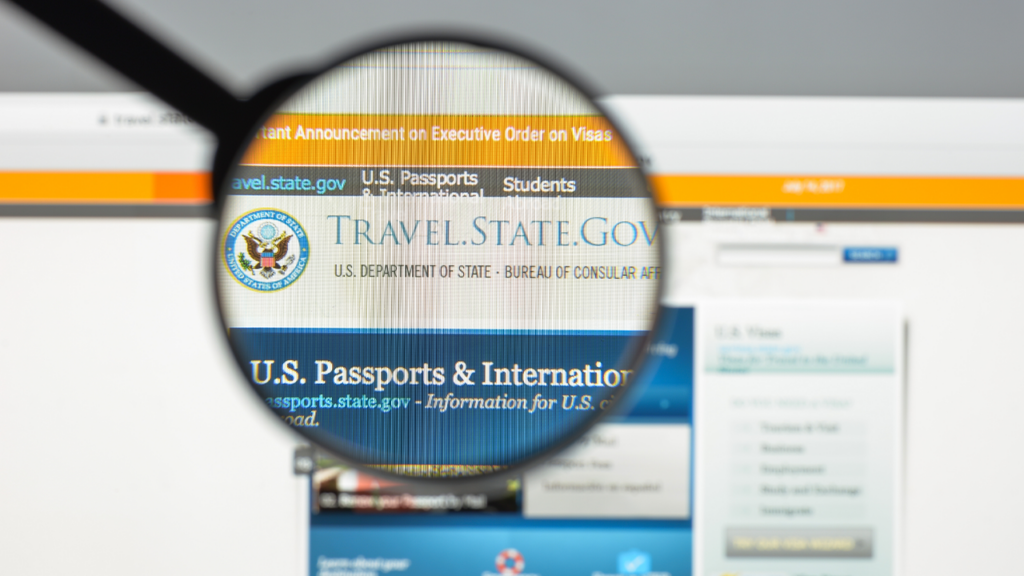Expat Facebook groups should be a goldmine of support, advice, and camaraderie. They provide real-time updates on immigration laws, safety concerns, housing tips, and local events—often faster and more accurately than mainstream news sources. During the COVID-19 pandemic, expat groups provided crucial, on-the-ground information that was more reliable than legacy media outlets like CNN or MSNBC, which many believe permanently destroyed public trust in journalism.
Despite these positive benefits, expat Facebook groups are often cesspools of negativity, egos, and relentless toxicity. But why?
Let’s break down the top 10 reasons why expat Facebook groups are becoming so toxic that these groups, which were designed to help and inform expats, are starting to do more harm to expats than good.
1. Many Expats Are Running from Something

Photo ID 179657517: © Koldunova | Dreamstime.com
Let’s be honest. Most expats didn’t leave their home country because they were wildly successful. The minority of financially successful expats, often retirees who worked hard all their life, are the quiet ones that you will never see in the comments of an expat Facebook group. But for most, many expats are escaping something—bad finances, broken relationships, legal troubles, or just a deep dissatisfaction with their life. While the pursuit of happiness is something everyone should seek and I encourage 100%, many have thought that moving abroad would fix their problems, but instead, they brought their baggage with them. This unresolved personal turmoil often spills into expat Facebook groups, where they lash out at others instead of addressing their own issues.
2. Mental Health Issues Are Unchecked

Photo ID 366611790 © Anastasiia Torianyk | Dreamstime.com
Mental health struggles are real, and many expats deal with depression, anxiety, PTSD, or even undiagnosed personality disorders. The problem is, in many countries, mental health services are either expensive, low-quality, or simply not a priority for expats. Instead of seeking therapy, they use expat Facebook groups with large followings as an outlet for their frustrations, engaging in endless arguments and aggressive behavior. A simple question like “Where can I find good WiFi?” can quickly spiral into a toxic debate.
3. Bringing Their “Dirty Laundry” Abroad

Photo ID 42722900 @ Ocusfocus | Dreamstime.com
Expat Facebook groups attract a mix of people, including those with sketchy pasts. Some were unsuccessful in their home country and now try to reinvent themselves as “big shots” overseas. Others have serious baggage—failed businesses, divorces, criminal records—but rather than learning from their mistakes, they continue their destructive patterns in a new setting blaming the world for their troubles and criticizing others success. These individuals often dominate expat Facebook groups, acting like know-it-alls while putting others down.
4. The ‘Kingpin’ Mentality

Photo ID 142401298 @ Prazis | Dreamstime.com
Let’s be honest — when Westerners from the U.S., Canadians, Australians, and Europeans move to countries like Colombia, they suddenly find themselves in a financial position they never had back home. A 20-50% savings on living costs and lower taxes can make an average person feel like a high roller. This financial boost inflates their ego, and some develop a superiority complex. They begin treating locals—and even other expats—as beneath them. This narcissistic behavior fuels resentment, creating rifts in the expat community and endless online clashes in expat Facebook groups.
5. The ‘I’ve Been Here for a Year, I Know Everything’ Attitude

Photo ID 9903441 @ Robert Byron | Dreamstime.com
There’s a common expat phenomenon where someone moves abroad, spends a few months figuring things out, and then suddenly thinks they’re an expert. They talk down to newer expats, mock their questions online, and act like they have all the answers. The irony? The true veterans—the ones who’ve been around for a decade or more—usually don’t waste their time in expat Facebook group debates. They’re too busy enjoying their life abroad.
6. Cultural Clashes and Entitlement

Photo ID 124801738 @ Alberto Jorrin Rodriguez | Dreamstime.com
Many expats struggle to adapt to their new culture and expect everything to function like it did back home. Instead of learning and respecting the local way of life, they complain—endlessly. They act entitled when things don’t go their way, whether it’s customer service, infrastructure, or bureaucracy. They flood expat Facebook groups with complaints about why things aren’t “as good as in the U.S.,” completely missing the point that they moved abroad for a different experience in the first place.
7. Aging, Loneliness, and Loss

Photo ID 143458743 @ Pabloborca | Dreamstime.com
The brutal reality is that many expats are older, and as time passes, they lose family members and lifelong friends. Their social circle shrinks, and without a strong network in their new country, they become isolated. This loneliness can lead to bitterness, and in online spaces, that often manifests as hostility toward strangers. The truth is, some of these people don’t have anyone else to talk to, so they take out their frustration on the nearest target.
8. The Dark Side of Moderation in Expat Facebook Groups

Photo ID 57035420 @ Kiosea39 | Dreamstime.com
One critical issue in expat Facebook groups is the role of moderators. In an attempt to keep the page functional and informative, admins appoint moderators to manage and control content. However, this often turns into a “damned if you do, damned if you don’t” scenario for admins. Unlike admins, moderators have less skin in the game—they don’t own the page or the community, yet they wield significant power over discussions. Many moderators end up trying to dictate narratives, suppress free speech, and censor posts that don’t align with their own personal views, rather than maintaining an open and balanced forum.
Unfortunately, moderators often use their micro-power to boost their egos, rather than to foster real discussion. This is one of the biggest problems with expat Facebook groups—what should be a space for shared knowledge and community support often becomes a playground for power-hungry moderators who censor, ban, and dictate what can and cannot be said. The result? A group that feels more like a dictatorship than a community.
If an expat Facebook group or any group in general is going to be useful, it needs transparency, fairness, and leadership that values discussion over control. Otherwise, these spaces become nothing more than ideological battlegrounds where open dialogue is replaced by selective censorship.
9. Scammers, Predators, and Shady Opportunists

Photo ID 355210027 @ Tero Vesalainen | Dreamstime.com
Expat communities, especially in popular destinations like Colombia, Thailand, and Mexico, attract not only retirees and remote workers but also con artists, shady business operators, and outright criminals. Scams related to real estate, crypto, investment opportunities, and visas are rampant in expat Facebook groups. When someone exposes these frauds, the scammers retaliate viciously. These conflicts spill into expat Facebook groups, leading to endless toxicity and distrust between expats and locals online.
10. Politics and Ideological Wars

Photo ID 349018716 @ Yuriy Nedopekin | Dreamstime.com
Expats come from all walks of life, and their political views often reflect that. However, some people simply cannot let go of the political battles from their home country. They bring their left vs. right-wing wars into every discussion, even when it’s completely irrelevant. Someone asks about the best local restaurant, and within three comments, the discussion has devolved into a fight about socialism, capitalism, or immigration.
BONUS
People Ask the Same Dumb Questions Every Day

Photo ID 37563364 @ Loganban | Dreamstime.com
A major frustration in these groups is the sheer laziness of many members. This is one of the main reasons that turned me off from these expat Facebook groups in general. Instead of Googling basic things like “What’s the weather like in Medellin?” or “Does Colombia have internet?” Many people flood the group with repetitive, low-effort questions.
This dilutes real discussions and makes these expat groups less useful for people who need genuine, in-depth advice.
The Silver Lining: Why Expat Facebook Groups Still Matter

Photo ID 244940153 @ Yuri Arcurs | Dreamstime.com
Despite all this toxicity, expat Facebook groups still serve a vital purpose.
- Emergencies & Safety Alerts: If there’s a security issue in a neighborhood, an earthquake, or a political protest, expat groups often provide faster and more accurate updates than local news.
- Changes in Immigration & Visa Laws: Bureaucracy can be confusing, and governments don’t always communicate well. These groups help members stay ahead of changes that could affect their residency or work status.
- Local Recommendations: Need a reliable lawyer, doctor, or plumber? Want to know which restaurants won’t rip you off? The best answers often come from other expats who’ve been through it already.
- Job & Business Opportunities: Whether you’re looking for remote work, freelance gigs, or business connections, expat groups can be a great networking tool—if you know how to navigate past the noise.
- Unfiltered News: During the COVID-19 pandemic, many expats relied on these groups for real, firsthand information, while mainstream media failed them. Legacy outlets like CNN and MSNBC lost public trust, while expat networks provided crucial, on-the-ground updates that helped people make life-altering decisions.
Alternative Options: Where Else Can You Get Reliable Expat Information?
If you want real answers without the drama, there are better sources than expat Facebook groups:
1. AI-Powered Platforms (ChatGPT, Grok, and Other Real-Time AI Software)

Photo ID 275857176 @ Boarding1now | Dreamstime.com
AI tools like ChatGPT and Grok can provide 90% of the information you need about moving to another country, including:
- Cost of living
- Crime rates
- Best areas to live
- Best restaurants, internet providers, banks, and local apps
- Visa and residency options
AI is especially useful for factual questions. Expat groups, on the other hand, should be used for personal experiences and in-depth discussions, not basic, Googleable facts.
2. Official Government Websites

Photo ID 103282818 @ Casimirokt | Dreamstime.com
For visa laws, taxes, and legal info, always check official sources first. Many expats get scammed or fined because they trust random Facebook advice instead of the actual government website. If you are having trouble understanding the legal language of a document or any information, copy/paste the web link or upload the document to ChatGPT and ask AI to break down everything for you to understand more in simple and straight forward terms.
3. Independent Expat Websites & Forums

Photo ID 368942780 @ Denis Shevchuk | Dreamstime.com
Platforms like Reddit (r/expats, r/Colombia), Expats.Online, NomadList, and International Living often have more useful and accurate information and discussions than expat Facebook groups.
Final Thoughts: Take the Good, Leave the Bad

Photo ID 267539786 @ Yuri Arcurs | Dreamstime.com
Expat Facebook groups are a double-edged sword. They can be incredibly useful, but they also require a thick skin. The best way to engage with them? Take the useful information, ignore the toxic noise, and don’t feed into the drama. If you’re new to expat life, use these groups as a tool—but don’t let them define your experience. If you really want to enjoy your life abroad, step away from the keyboard, make real connections, and embrace the adventure.












